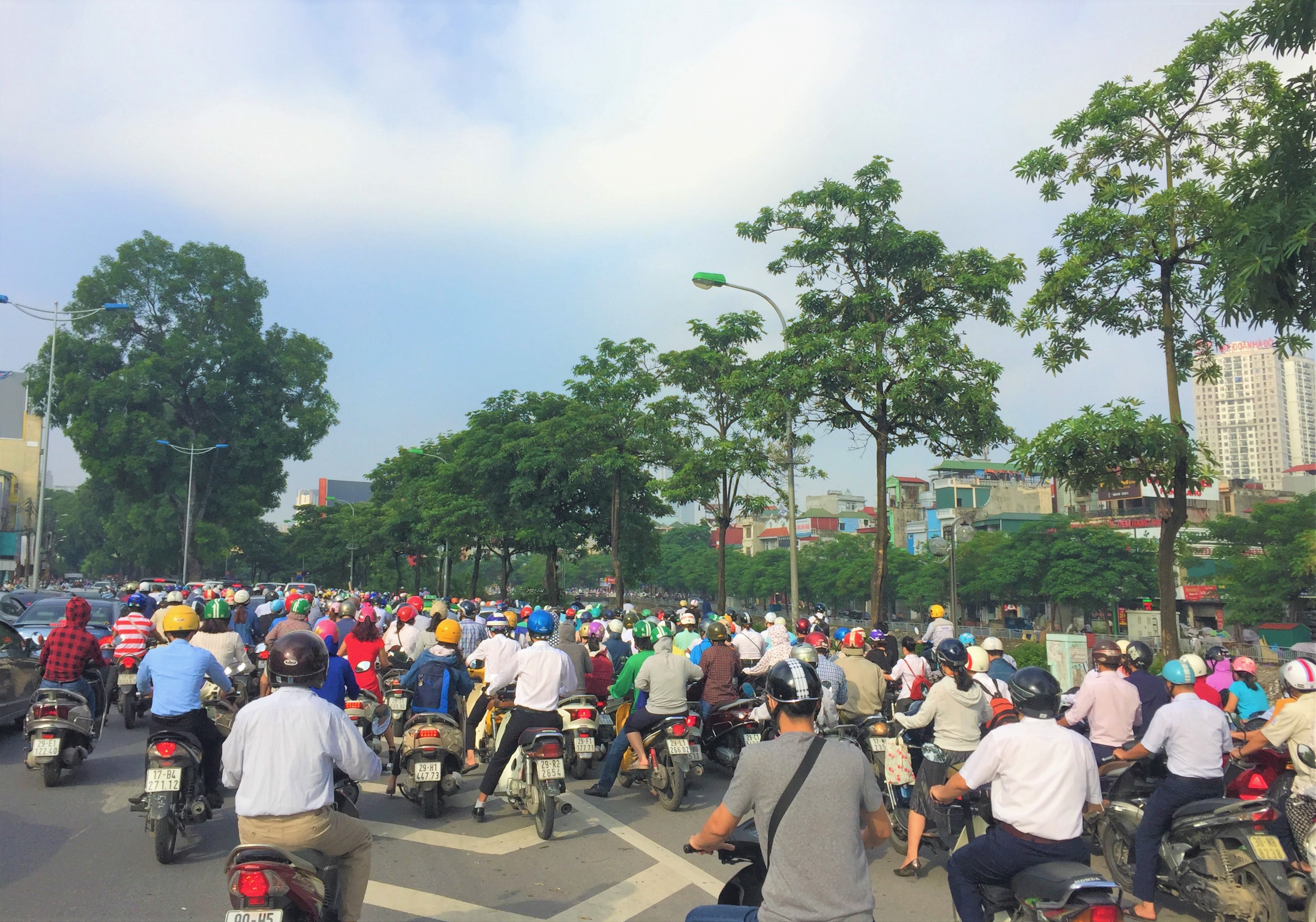Drawing upon my fieldwork in Xi’an, I attempt to problematise the binary of insider-outsider by drawing on the term, familiar strangers, to describe the positionality of Western-trained Chinese researchers. Performing as familiar strangers opens up an alternative space for these Western-trained Chinese scholars to fully capture the nuances of the everyday while being critical and reflexive, writes Yang Yang.
Doing fieldwork in China has always come loaded up with anticipated and unexpected dilemma. This is especially problematic when it comes to categorising the researcher as either an insider or an outsider. These two seemingly mutually exclusive categories become entangled with regard to the positionality of situated Chinese scholars based in the West. By situatedness, I refer to the subjectivity, the opposite of the objectivity celebrated by modern scientific knowledge (Haraway 1988). By ‘situated Chinese scholars’, I refer to those scholars who are either ethnically Chinese or Chinese nationals who received academic training and conducted research in affiliation with universities in the Euro-American world.
In this contribution, I apply the term ‘familiar strangers’ coined by Jonathan Lipman (1997) on multiple identities of Muslim Chinese to discuss positionality of Western-trained Chinese scholars, as well as dilemmas and opportunities they encountered in the field. By showing how being familiar and strange become mutually constitutive, I explore multiple subjectivities of situated Chinese researchers produced in the fieldwork. I argue that Western-based Chinese scholars are familiar insiders and distanced strangers, offering them a unique perspective infused with lived experience and critical reflexivity. To contextualise this inquiry, I reflect on my ethnographic fieldwork in Hui Muslim communities in Xi’an, Shaanxi in 2011-2012.
Familiarity and strangeness, a mutually constitutive dialectic, manifest various degrees of participation by researchers in the field. This is especially intricate when a researcher is entangled in the field as a situated subject. On the one hand, familiarity brings invaluable opportunities to examine the extent to which hypotheses generated from existing literature are played out on the ground. To operationalise this examination, academic discussions need to merge into conversations with informants through translating academic language into a colloquial register. In this light, familiarities with the Chinese language and related subterranean social contexts give situated Chinese scholars an opportunity to reflect upon the extent to which academic concepts and debates travel across different cultures and languages (e.g. Mandarin Chinese and other local dialects).
As for my research, I looked at how the concept ‘suzhi’ manifests in the context of ethnic schooling. Focusing on rationales and practices of the state, I asked how the calculation of human qualities, or suzhi in particular, functions as a technique of governing ethnic subjects. Suzhi, translated as quality, has been widely referred to in public discourses since the 1980s. It congeals a constellation of qualities in morality, aesthetics, intelligence, and physical and psychological health (Yan 2003). It manages individuals through measuring deficiencies in qualities to normalise certain types of conduct (Sun 2009). Existing literature situates suzhi in Foucauldian frameworks including discipline, governmentality and biopolitics to unpack it as a state apparatus. Subsequently, many have overlooked the actual effects in relation to subjectivities of both state and non-state actors and outcomes of normalising social stratification through calculating deficiencies. My objective of the fieldwork in Xi’an was to examine the actual outcomes of suzhi-oriented ethnic education.


Initially, I was excited about doing research in my hometown as a native. Yet, it was precisely this convenience in which the dilemmas of familiarity and strangeness came into play. First, familiarity presents constraints including trust issues. For instance, some Hui informants have been skeptical about my intent to conduct interviews with them. From their perspectives, even though they were aware of strategies used for privacy protection such as pseudonyms, they were uncertain about how I would use their opinions in the public domain of the Chinese language. They worried about potential leakage of their opinions through circulations of my academic outcomes in Chinese. In this light, familiarity with the Chinese language presents a dilemma in building trust. As one respondent suggested, they would reserve some of their opinions because I, unlike non-Chinese scholars, have no problem understanding some implicit meanings of their remarks. For instance, when discussing the effectiveness of opening an Arabic language course in local ethnic schools, a male informant used the term ‘xiu xianren’ (羞先人) in the Shaanxi dialect to indicate his discontent with the Arabic course. Literally translated as ‘a disgrace to one’s ancestors’, this term in certain contexts function as an impolite curse to express extreme emotions. In this particular example, this informant used this phrase to express his dissatisfaction with the removal of Islam in Arabic language courses that Muslim students were taught. While suggesting some degrees of impoliteness, this phrase showed a strategic expression of his discontent. Rather than specifying his comments in the context of ethnic relations, he creatively linked issues in ethnic education to the failure of disobeying Chinese social and moral traditions. Other Chinese who are not familiar with the local dialects will not comprehend this term and its nuances either, not to mention non-native Chinese speakers. If switching the conversation into Mandarin Chinese, this informant might not even bring up this term. Therefore, this ‘lost in translation’ allowed them to have some room of security and privacy. My presence as a Xi’an native would not offer them such a space.
In contrast to familiarity, strangeness presents similar dilemmas on different issues. Strangeness questions the applicability of Western-based knowledge, and manifests elitist interpretations of individual experiences on the ground. Being trained at non-Chinese universities with Western-originated theories and research methods, situated Chinese scholars are at once perceived as ‘welcomed experts’ and ‘strangers’ who only ‘imagine’ life of the locals. This seemingly contradictory combination was present throughout the entire fieldwork, especially in the early phase. Possibilities of knowledge coproduction emerge out of the irreducible distance between Chinese scholars associated with the West and participants in their field sites. During the past three years, every time when I introduced myself as a Chinese student who was based in a non-Chinese university, many local Hui participants responded with positive feedback. Specifically, they wished to engage more Chinese researchers like me in researching the Hui communities so that Muslims outside China would know more about their stories in China.
Moreover, they perceived my presence as a medium for the transfer of more ‘advanced’ Western knowledge to their communities. For instance, when I explained my research objectives and questions, many locals, especially ethnic elites of the Xi’an Hui, showed a strong interest in social theories related to my research design. Many of the Hui elites, either working as local religious leaders or school officials, had previous exposure to the Chinese interpretation of Marxist theories. They found it intriguing to apply social theories discussed outside the PRC to Chinese questions on religion and ethnicity. Subsequently, they found a different vantage point to reflect on current strategies of using education to constitute ethno-religious identity of the Hui Muslim.
However, while being a vehicle for the Hui to know more about ideas from the outside, I potentially exposed them to pitfalls caused by the knowledge transfer. For instance, when commenting on current national policies, the use of particular terms related to certain theoretical realms such as postcolonial studies in the public domain might get them in trouble for political reasons. The issue of political sensitivity emerged in a conversation I had with a local Hui scholar on the current progress in China’s ethnic studies. He corrected me for associating China with postcolonial theories. That is, it was pointless to critique China, especially if the PRC did not have a colonial past in managing ethnic groups. He responded to me with the following remark, “I am not buying these ideas since these are all fantasies of foreigners about China. All they want is to change our faith in this country. You are a Chinese. Do not mislead me to a politically incorrect path”. In this light, my banal intent as a ‘stranger’ might potentially lead to undesirable results that concern privacy and security of my informants.
It simplifies the dilemma of strangeness if it is only considered as a bridge that connects researchers with participants in either positive or negative ways. In this light, it is worth reconsidering some unbridgeable gaps between situated Chinese researchers and participants in research sites. These gaps emerge in disseminating knowledge produced in the field, in which diverged understandings of research significances are found especially problematic. While participants expect some empirical suggestions for issues of their concerns, researchers pay more attention to theoretical implications. In my research, since my focus was on education, many of my Hui participants were parents. Upon completion, I circulated a project summary that contained key research questions, results and conclusions generated from the fieldwork. Unsurprisingly, the feedbacks from my participants varied significantly. For instance, a heated debate was raised on the argument that suzhi functions as a calculable grid that legitimises ethnic stratification. Among my informants, some critiqued this argument for its failure to provide practical solutions to address their immediate needs of enhancing their mobility. More specifically, they found it too utopian to claim that suzhi-based ‘ethnic hierarchy’ in China was contested by the everyday practices of the Hui as critiques of existing education policies. Unsurprisingly, instead of my research results, I became the target of their discontents. In their viewpoint, though being a local, I was too aloof to concern their needs of solutions because I was preoccupied with my academic interests. Their disappointment with my research outcomes confirms the irreducible gap for me to become a fully familiarised member of the Hui communities. Regardless of my sophistication of local dialects and cultural contexts, I can only perform a role of ‘insider’ while being aware of some irreconcilable issues that keep me distant. Therefore, the intertwined familiarity and strangeness constitute my unique subjectivity in the field, in which I am a situated Chinese subject to the eyes of the locals but never fully understanding their needs in a practical sense.
In conclusion, the interplay between familiarity and strangeness opens up a novel space to understand how researchers and participants interact with each other during the fieldwork. Researchers explore the applicability of existing theories and debates on the ground by constantly shifting their positionality. The hybrid role performed by situated Chinese researchers opens up a new possibility of reflecting upon researchers’ subjectivity. Lying at the heart of this possibility is the combination of a situated understanding of China in everyday encounters with self-reflexive critique of ‘authoritative’ Western theories. This process echoes to the feminist critique of objectivity in research (Haraway 1988), which is especially important for scholars who study vulnerable groups. By bridging local perspectives and theoretical debates in academia, Western-trained Chinese scholars will be able to make ethnographic research less authoritative and facilitate knowledge coproduction.
Photo credit: Yang Yang
References
Lipman, J. (1997) Familiar Strangers: A History of Muslims in Northwest China. Seattle: University of Washington Press
Haraway, D. (1988) Situated knowledges: the science question in feminism and the privileges of partial perspective. Feminist Studies 14(3), pp. 579-599
Sun, W. (2009) Suzhi on the move: body, place, and power. Positions 17(3), pp. 617-642
Yan, H. (2003) Neoliberal governmentality and Neohumanism: organizing suzhi/value flow through labor recruitment networks. Cultural Anthropology 18(4), pp. 493-523
About the Author
Yang Yang is a PhD student in human geography at University of Colorado at Boulder. Primarily focusing on North-western China, Yang is interested in ethnic politics and urban geography, as well as governmentality and post-colonial studies. Specifically, she looks at practices and knowledge of the central state in governing ethnic minorities, and the actual effects and outcomes during the process of policy implementations.
About the Project
The research reported here is part of an on-going longitudinal study. The contribution specifically draws on the fieldwork in 2011-2012 for the masters dissertation submitted to the London School of Economics, and the fieldwork also serves as the basis of my current PhD research. Two papers were presented earlier: “Becoming Qualified Chinese Muslims: Creating Governable Ethnic Minorities through Education” at the Annual Meeting of the Association of American Geographers (AAG) in April 2013 (Los Angeles, USA) and “Reconfiguring the Hui Frontier at School: Making Governable State Space and Ethnic Subjects in Northwestern China” at the Annual Meeting of the International Geographical Union in August 2013 (Kyoto, Japan).






1 Comments